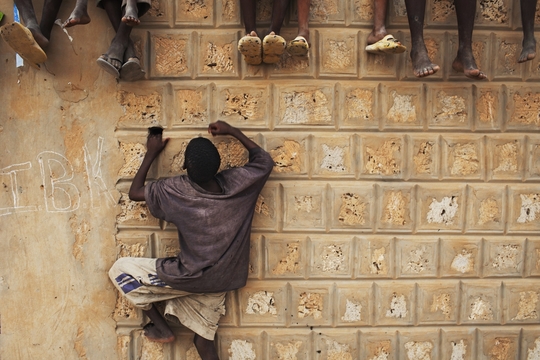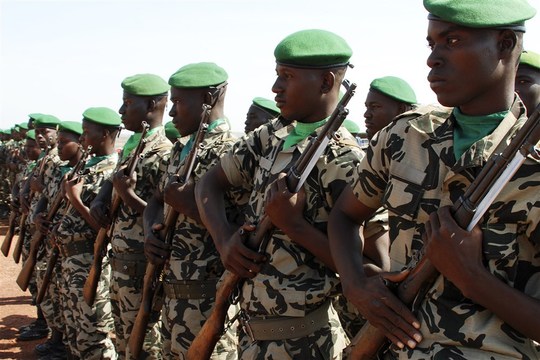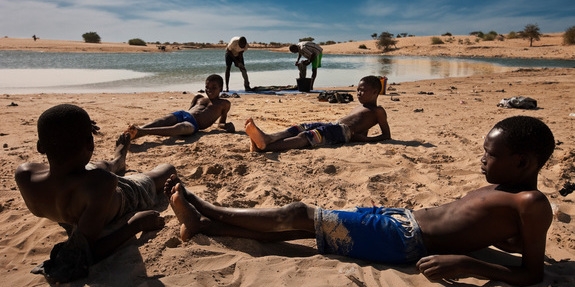No Hearts, No Minds, The War on Terror in Africa Part 1 is a new ZAM-AIPC transnational investigation. It shows that a 'war only' strategy creates more and more terrorists in the eastern and western regions of the continent. In this chapter: Mali.
“The government ignores us completely and that makes us rebellious,” says Mahamane Gobi, a construction entrepreneur in Timbuktu. Gobi's office and workshop have stood empty since 2012, the year of the first jihadist invasion. Gobi never liked the jihadists – practically no one in Timbuktu, with its centuries-old libraries, temples and musical traditions, did – but the panic and destruction wreaked by the extremists had been followed by an equally horrific “anti-terror war” waged by the French and Malian governments. Gobi and others in Timbuktu hadn’t appreciated that much either. In the hunt for “subversives”, hundreds of human rights abuses had again been committed: from beatings to prolonged unlawful detention to extrajudicial killings. Even buildings that had survived the jihadists were now destroyed by anti-terror bombings.
Everyone is unemployed
On the bright side, you might say, a building contractor would now be getting a lot of work from the widely announced reconstruction projects in this famous city of ancient culture. But so far only two of these projects, the Babah Ahmed library and several mausoleums, have (very slowly and with many hiccups) been put in motion. Worst of all, local entrepreneurs have once again been overlooked. Construction companies have been brought in from the seat of government: the capital, Bamako, in the south.

Timbuktu today, then, is a desert without any rules or public service. Military settlements dominate the landscape around the deserted town, which an estimated quarter to half of the inhabitants have fled. Courts and schools hardly function. For each document, certificate, driving or trading license, one has to go to Bamako, a thousand kilometers down south – and most people have no money for transport.
"If the government does nothing for us, then we will consider joining parties that do"
Ex-tourist guide Ayouba Ag Moha laments: “Everyone here is now unemployed, like me.” He does not say it, but others who wish to remain anonymous do: “If the government in Bamako does nothing for us, then we will consider joining parties that do.”
Northern Mali has always had reason for discontent with Bamako. The region has been thoroughly neglected and – this, is of course, not unrelated – it has also long been the scene of rebellion and a yearning for independence.
The south is also poor, but at least it is home to the capital. Bamako is about the only place in the country that works, and it works only by the grace of millions of dollars of donor money. Donors and a corrupt state elite, seen by many (and certainly by a majority in Northern Mali) as nothing more than a spoiled bunch of western puppets, call the shots.
Aversion and fear
Aversion against ‘Bamako' now sometimes even surpasses – at least in the minds of many in northern Mali – the fear of the jihadists who conducted a year of terror rule in the region in 2012. The very fact of that jihadi invasion is, incidentally, also widely seen as caused by another Western intervention: the regime change in Libya in 2011, in which Colonel Gaddafi was killed. It was that operation that caused hundreds of armed Tuaregs who had served in Gaddafi’s militia to descend on Mali, where they then relaunched their own independence struggle with extra energy, and in a coalition with the jihadist Ansar Dine.
After the failed development programme Al Ghali had resurfaced as head of Ansar Dine
This extremist Islamist rebel movement had meanwhile been set up by local leader and warlord Iyad al-Ghali, who had previously been a confidante of Mali’s president and, in that capacity, had headed a “development programme for the north”. But, like all development programmes in Mali, that project had been doomed to fail, and al-Ghali had resurfaced as leader of Ansar Dine. (In contrast to the development project, and as perhaps befits a tight group with a strong authoritative leader, Ansar Dine did, at least, work.)

There are now all sorts of “other parties” in northern Mali. There are extreme and less extreme Islamic fundamentalist militias. There are the Touaregs, with their independence movement MNLA: the National Movement for the Liberation of Azawad, as they call the region. There are ordinary criminal syndicates who, just like many Sicilian mafias, feed and protect their families and communities by drug and weapon trafficking for the jihadists and other armies.
Siren song
But it is the ideological, extreme Islamist groups that are most attractive to rebellious youth. After all, they promise not only money and weapons, but also a meaning to their lives. “Spiritual salvation” and “righteous war” are terms that can sound like music to the ears of angry young men with desperate families.
There is hardly a family in Gao that hasn’t lost a son or nephew to the extremists
Which is why local official Omar Babi in Gao, the second city in northern Mali, speaks of a siren song. It is worrisome, he says, that there is hardly a family in Gao that hasn’t lost a son or nephew to the extremist rebels, either through abduction, volunteering, or in exchange for money. In whichever way these youngsters end up with the militias, the result is, Babi says, “that they are both militarily trained and religiously indoctrinated.”
Two weeks after this interview, the Radisson Hotel in Bamako was attacked by one of the groups that have their base in northern Mali. There were nineteen deaths.


